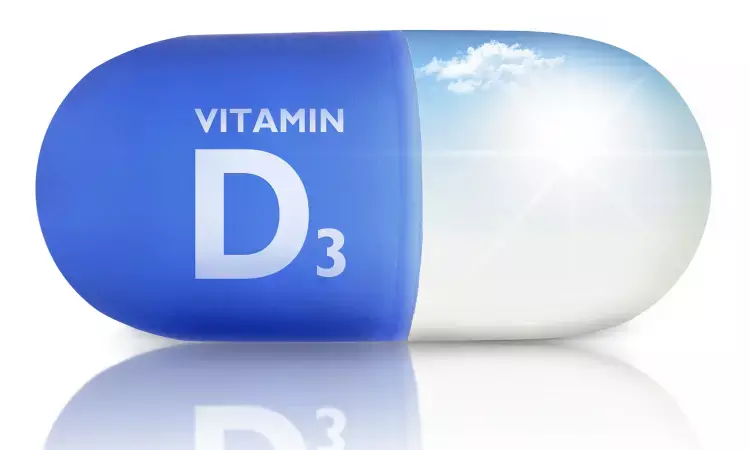- Home
- Medical news & Guidelines
- Anesthesiology
- Cardiology and CTVS
- Critical Care
- Dentistry
- Dermatology
- Diabetes and Endocrinology
- ENT
- Gastroenterology
- Medicine
- Nephrology
- Neurology
- Obstretics-Gynaecology
- Oncology
- Ophthalmology
- Orthopaedics
- Pediatrics-Neonatology
- Psychiatry
- Pulmonology
- Radiology
- Surgery
- Urology
- Laboratory Medicine
- Diet
- Nursing
- Paramedical
- Physiotherapy
- Health news
- Fact Check
- Bone Health Fact Check
- Brain Health Fact Check
- Cancer Related Fact Check
- Child Care Fact Check
- Dental and oral health fact check
- Diabetes and metabolic health fact check
- Diet and Nutrition Fact Check
- Eye and ENT Care Fact Check
- Fitness fact check
- Gut health fact check
- Heart health fact check
- Kidney health fact check
- Medical education fact check
- Men's health fact check
- Respiratory fact check
- Skin and hair care fact check
- Vaccine and Immunization fact check
- Women's health fact check
- AYUSH
- State News
- Andaman and Nicobar Islands
- Andhra Pradesh
- Arunachal Pradesh
- Assam
- Bihar
- Chandigarh
- Chattisgarh
- Dadra and Nagar Haveli
- Daman and Diu
- Delhi
- Goa
- Gujarat
- Haryana
- Himachal Pradesh
- Jammu & Kashmir
- Jharkhand
- Karnataka
- Kerala
- Ladakh
- Lakshadweep
- Madhya Pradesh
- Maharashtra
- Manipur
- Meghalaya
- Mizoram
- Nagaland
- Odisha
- Puducherry
- Punjab
- Rajasthan
- Sikkim
- Tamil Nadu
- Telangana
- Tripura
- Uttar Pradesh
- Uttrakhand
- West Bengal
- Medical Education
- Industry
Obesity with Vitamin D deficiency tied to increased risk of depression

A study published in Clinical Laboratory has concluded that individuals at risk of depression have higher BMI and lower serum Vitamin D levels.
Previous research has associated vitamin D deficiency or hypovitaminosis with obesity and depression. A team of researchers investigated this further on,
“What is the association of vitamin D with depression in obese patients?”
The study included 107 obese patients who were followed up and treated at an obesity centre. There were two groups; one group was deficient in vitamin D with a serum 25(OH)D level of < 20 ng/mL, while the other not deficient group had a serum vitamin D level of ≥ 20 ng/mL.
According to BDI scores, patients were divided into two groups with BDI scores < 17 and ≥ 17.
The study results are summarised as follows:
- Those with a higher risk for depression with a BDI score ≥ 17 had higher weight and BMI. These patients had lower levels of serum 25(OH)D levels.
- There was a moderate positive association of BDI scores with BMI, a weakly negative relationship with vitamin D levels, weakly positive relationship with weight.
- The BDI score me-dians of 12 and 8 were higher in patients with serum 25(OH)D levels of < 20 ng/mL than ≥ 20 ng/mL.
- There was a higher risk of depression due to increased BMI and decreased serum vitamin D levels.
Researchers said that serum vitamin D is a parameter that reveals those at risk of depression.
There was 92.86 % sensitivity and 68.82 % selectivity regarding the cutoff point of 25(OH)D ≤ 19.21 level (Youden index).
Obese patients at risk of depression have higher BMI and lower vitamin D levels.
Vitamin D supplementation has a therapeutic role in preventing depression.
Further reading:
Nur-Eke, Remziye, and Ibrahim Eke. “The Impact of Vitamin D Deficiency on Depression in Obese Adults.” Clinical Laboratory, vol. 69, no. 02/2023, Clinical Laboratory Publications, 2023. Crossref, https://doi.org/10.7754/clin.lab.2022.220526.
BDS, MDS in Periodontics and Implantology
Dr. Aditi Yadav is a BDS, MDS in Periodontics and Implantology. She has a clinical experience of 5 years as a laser dental surgeon. She also has a Diploma in clinical research and pharmacovigilance and is a Certified data scientist. She is currently working as a content developer in e-health services. Dr. Yadav has a keen interest in Medical Journalism and is actively involved in Medical Research writing.
Dr Kamal Kant Kohli-MBBS, DTCD- a chest specialist with more than 30 years of practice and a flair for writing clinical articles, Dr Kamal Kant Kohli joined Medical Dialogues as a Chief Editor of Medical News. Besides writing articles, as an editor, he proofreads and verifies all the medical content published on Medical Dialogues including those coming from journals, studies,medical conferences,guidelines etc. Email: drkohli@medicaldialogues.in. Contact no. 011-43720751


